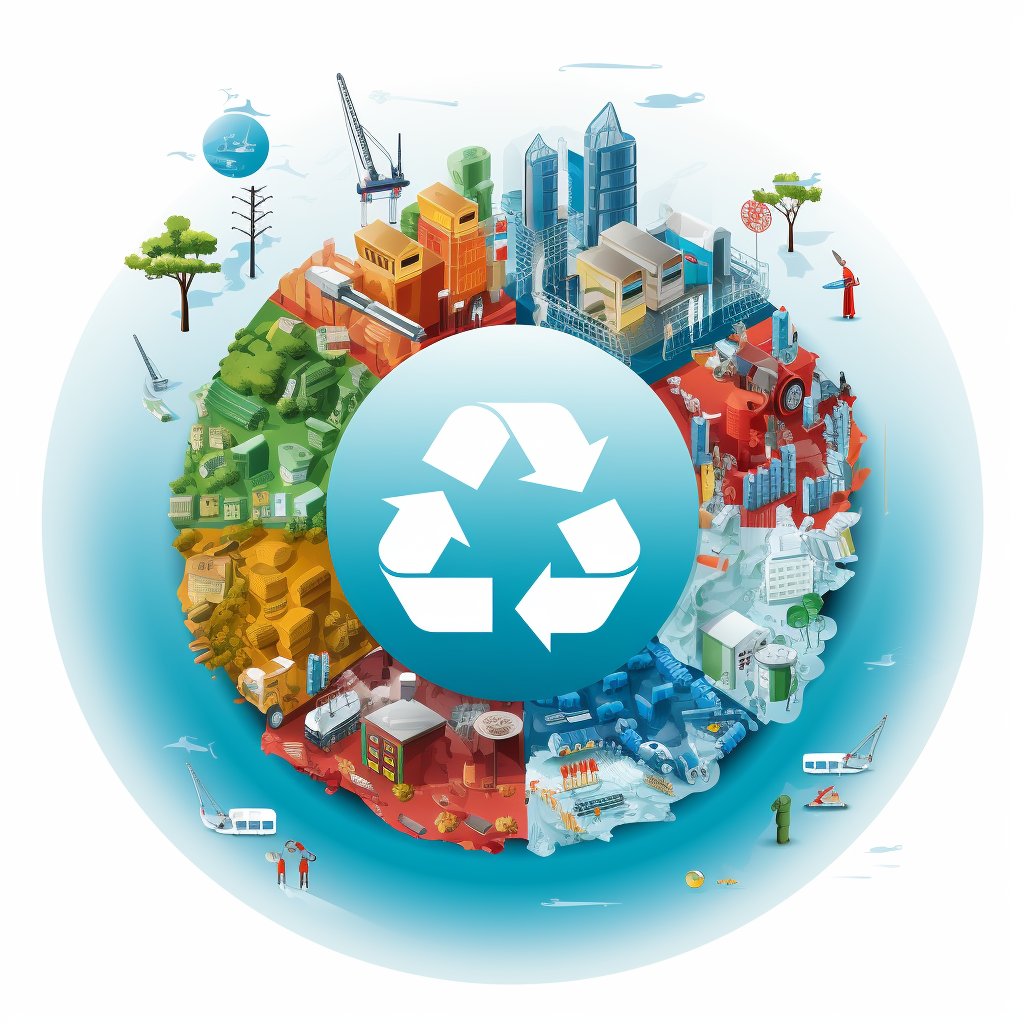Waste management is essential to our society, but it often gets overlooked or taken for granted. As a result, waste management has become a major environmental issue that needs to be addressed. In recent years, there has been a growing awareness of the need to manage waste more effectively, and various industries have started to take steps towards making waste management a valued part of society.
In recent years, the issue of waste management has become increasingly urgent as the world grapples with the environmental and economic impact of waste disposal. The plastics industry, recycling industry, and university students are just a few of the groups grappling with waste management and how to create a sustainable future. Fortunately, there are many ways to make waste management a valued part of society, from improving recycling infrastructure to developing innovative new recycling technologies.

Industrial Usage
Waste management is a critical aspect of industrial operations, and many industries have developed innovative ways to reduce waste and recycle materials. For example, the plastics industry has developed various recycling techniques, including mechanical, chemical, and energy recovery. These techniques allow the industry to reuse plastic waste and reduce its environmental impact.
Application Areas
Waste management is not only limited to industrial usage but has also found its way into various application areas. One such area is construction, where waste management plays a crucial role in managing construction waste. Recycling construction waste reduces the amount of waste going to landfills and provides valuable resources for new construction projects.
Consumer Product Examples
Consumers can also play a vital role in waste management by making conscious decisions about the products they use and dispose of. Many consumer products, such as electronics and household appliances, can be recycled. Additionally, many companies are adopting sustainable packaging practices to reduce waste and encourage recycling.
Material Properties
One of the critical aspects of waste management is understanding the properties of different materials. Understanding the properties of materials allows for better recycling techniques and helps to reduce waste. For example, some plastics are more easily recyclable than others, and understanding these properties can help the industry develop better recycling techniques.
Future Trends in Recycling
As society becomes more aware of the need to manage waste effectively, recycling trends will continue to evolve. One of the most promising trends is the development of new recycling techniques, such as chemical recycling, which can recycle even hard-to-recycle materials. Additionally, the use of artificial intelligence and machine learning is expected to play a more significant role in waste management in the future.
The future of waste management will likely see a continued focus on sustainable waste management practices, with increasing investment in waste reduction, recycling, and energy recovery initiatives. As the world becomes more aware of the environmental impact of waste disposal, the demand for sustainable waste management practices is likely to continue to grow. Furthermore, technological advances, such as artificial intelligence and automation in waste sorting and recycling, are expected to improve the efficiency and effectiveness of waste management processes.
Market Price Developments
The market for waste management has been growing steadily in recent years, with increasing demand for sustainable waste management practices. As the costs of traditional waste disposal methods continue to rise, the economic benefits of waste reduction and recycling are becoming more apparent. For example, the market price for recycled materials such as plastics, metals, and paper has steadily increased, incentivising companies to invest in recycling and waste reduction initiatives.
Global Impact
The impact of waste management on the environment is significant, with waste disposal being a major contributor to pollution and greenhouse gas emissions. The global result of waste management practices is a growing concern, particularly in developing countries where waste management infrastructure is often inadequate. Sustainable waste management practices, such as waste reduction, recycling, and energy recovery, can significantly reduce the environmental impact of waste disposal.
Environmental and Economic Benefits
Making waste management a valued part of society is not only beneficial for the environment but also has significant economic advantages. Many countries worldwide have recognised the importance of sustainable waste management practices and have implemented various initiatives to reduce waste and promote recycling.
Environmental Benefits
One of the most significant environmental benefits of sustainable waste management practices is reducing greenhouse gas emissions. Landfills, for example, are a substantial source of methane emissions, a potent greenhouse gas contributing to climate change. By reducing the amount of waste sent to landfills and promoting recycling and energy recovery, we can significantly reduce these emissions.
Moreover, sustainable waste management practices can help to conserve natural resources and reduce the pressure on ecosystems. Recycling, for example, can reduce the need for virgin materials, such as timber, oil, and metals, often extracted at significant environmental costs.
Economic Benefits
Sustainable waste management practices can also provide significant economic benefits. By reducing the amount of waste sent to landfills, we can reduce the costs associated with waste disposal, such as landfill taxes and transport costs. Recycling and energy recovery can also create new revenue streams and employment opportunities.
Moreover, the market for recycled materials, such as plastics, metals, and paper, is growing, providing new opportunities for companies to generate revenue by recycling their waste. The economic benefits of sustainable waste management practices extend beyond the direct cost savings to creating new business opportunities and promoting economic growth.
Advantages and disadvantages of the management systems
When it comes to making waste management a valued part of society, several processes can be used, each with its own set of advantages, disadvantages, and environmental and global impacts. Here are some examples:
- Landfills: Landfills are one of the most commonly used waste management processes, but they come with several disadvantages. Landfills can produce methane and other harmful gases, which can have significant environmental impacts. Additionally, landfills can take up a significant amount of space and can be expensive to maintain.
- Incineration: Incineration involves burning waste to generate energy. While it can efficiently manage waste and generate energy, it also produces air pollution and toxic ash, which can have significant environmental impacts. Additionally, incineration facilities can be expensive to build and maintain.
- Recycling: Recycling is a sustainable waste management process that involves converting waste into new products. Recycling has several advantages, including reducing the need for virgin materials, conserving natural resources, and creating new revenue streams and employment opportunities. However, recycling can also be expensive and requires significant infrastructure and resources to be effective.
- Composting: Composting involves the breakdown of organic waste into a nutrient-rich material that can be used as fertilizer. Composting has several advantages, including reducing the amount of waste sent to landfills and improving soil health. However, composting can take time and requires specific conditions to be effective.
- Energy Recovery: Energy recovery involves converting waste into energy, such as electricity or heat. This process can be an efficient way to manage waste while also generating energy, but it can also produce air pollution and toxic emissions.
Waste management is an essential part of society
Waste management is an essential part of our society, and making it a valued part of society is crucial. The different aspects of waste management, including industrial usage, application areas, consumer product examples, material properties, and future trends in recycling, are critical to understanding the importance of waste management. Optimising waste management can reduce waste, conserve resources, and create a more sustainable future.
The importance of waste management cannot be overstated, and it is essential to make it a valued part of society. As the market for waste management continues to grow, the economic benefits of sustainable waste management practices are becoming more apparent. Moreover, the environmental impact of waste disposal is a growing concern globally, and adopting sustainable waste management practices is critical to reducing this impact. Looking ahead, the future of waste management is likely to see continued investment in sustainable waste management practices and technological advances, ultimately leading to a more efficient and effective waste management system.






